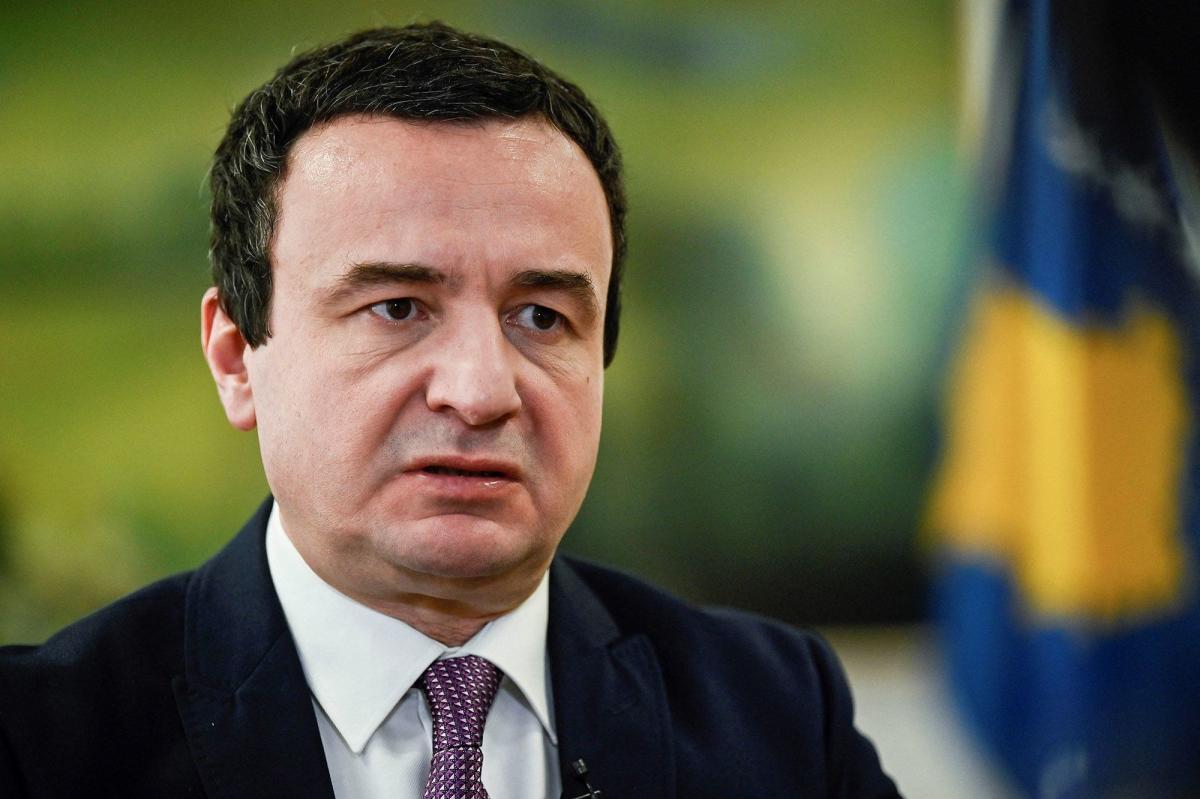
(Bloomberg) — Kosovo and Serbia have no alternative but to reach a final agreement on normalizing ties, Prime Minister Albin Kurti said, adding that the “time is ripe” to do so during his term in office.
Most Read from Bloomberg
The dispute — born of the 1998-1999 war and Kosovo’s declaration of independence from Serbia almost a decade later — continues to thwart efforts to integrate the two Balkan nations into the European Union while fueling tensions that risk boiling over into renewed conflict.
Kurti, who won half of all votes in Kosovo’s elections last year, said he’s ready for an agreement to move both nations closer to their joint dream of membership in the EU, which insists can only happen once they normalize their relationship.
“We have to have an agreement — and the time is ripe during the mandate of our government,” he said in an interview on Wednesday at his office in Pristina. “I see possibility. This autumn, we will find out whether we are going there. This autumn is quite decisive to see whether we should be optimistic.”
Kurti’s comments indicate the potential for new momentum after years of EU-mediated talks failed to produce a breakthrough in one of Europe’s most intractable geopolitical puzzles. The main sticking points are Serbia’s refusal to recognize its neighbor’s sovereignty and its demands that Kosovo grant autonomy to the roughly 100,000 ethnic Serbs who live there.
While Kurti didn’t disclose details of what a final deal may comprise, the two sides also have to work out issues ranging from bilateral relations based to dealing with past grievances tied to war victims, displaced persons and claims for war damages.
Kurti said he saw potential for a deal under the constellation of administrations led by US President Joe Biden, European Commission President Ursula von der Leyen and Serbian President Aleksandar Vucic.
Still, he said his greatest worry is that Vucic still hadn’t distanced himself enough from his past when he served as information minister to late strongman Slobodan Milosevic in the 1990s.
Vucic has also rejected cutting his close ties with Russian President Vladimir Putin, an ally in Belgrade’s efforts to prevent Kosovo’s international recognition. Despite intense pressure from Western countries, Vucic’s administration has refused to join EU and US sanctions against Russia for its invasion of Ukraine.
“This really is worrisome,” Kurti said.
Tensions between Serbia and Kosovo flared last month after Kurti pushed through a demand that Serbs living in Kosovo have Pristina-issued documents rather than identity cards and car plates issued by Belgrade. With local Serbs blocking roads in protests, and following pressure from international mediators, Pristina delayed its decision by a month to Sept. 1.
Kurti said he won’t postpone again, adding that he expects Sept. 1 to “be a quiet, ordinary day.”
If the situation does escalate into violence, police and NATO’s 3,800-strong KFOR peacekeeping force will end it, he said.
Kosovo has also been grappling with power cuts since mid August. They are expected to end as early as next week, but may return once winter closes in.
The country is at times dependent on increasingly expensive imported electricity, posing difficulties for the budget and one of Europe’s poorest populations. That may require financial aid from the EU and the US if power prices keep rising, Kurti said.
“We could face power cuts,” he said.
Most Read from Bloomberg Businessweek
©2022 Bloomberg L.P.




